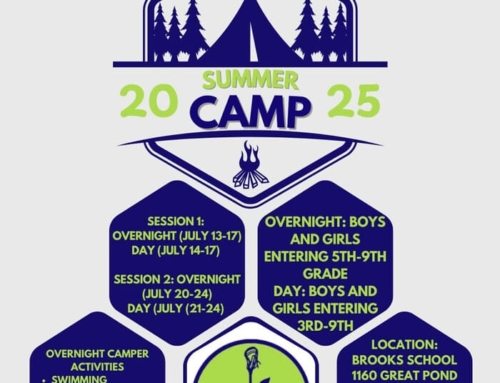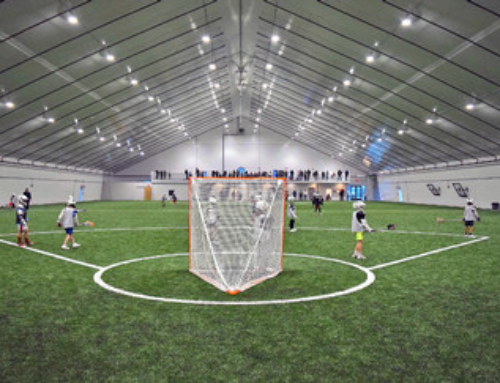
Q & A’s with Coach Bryan Brazill
What attitude and skills are important for a Middle School player to start developing to become a great lacrosse player?
Most middle school lacrosse players need to think in terms of keeping it simple. They get caught up in the flash of the game, and then the highlights. But what they don’t realize is that the guys they see making flashy plays have worked hard at building up exceptional fundamentals. The great players start with a great foundation. They typically use the flashy stuff as a last resort or when something opened up where they had to get flashy.
As far as attitude goes – you’ve got to be willing to keep learning. So many Middle School and High School kids think there’s nothing left for them to learn. Great college players learn something every day at upper level practices and games. Even with myself, I’ve been playing the game since I was nine and I still learn new stuff almost every time I play. I’m extremely open to adapting and evolving my game, I take a lot of my game from other players, incorporate things they do well, I also learn from friends and coaches all the time and I stay open to their advice.
So you’re always watching other people with the intention of seeing what you can pick up for yourself to learn more?
Constantly. All the best players I know are doing this. I find so often that young kids confuse still having stuff to learn with being bad or remedial. I think you can be an exceptional player and always have things to learn. Just because you need to be taught things and improve things doesn’t mean that you’re not already very good. You can be both. You can be learning AND good.
The sport has changed so much in the last ten years and will change so much more in the next ten years. If you’re standing still, you’re getting left behind. Some kids think they’ve got it all because they can catch and throw and shoot underhand. But not all kids are like that. I just had a lesson with three unbelievably talented 8th graders and they were like sponges just soaking up everything I said. They were really impressive, talented kids and they were there to learn and they got a lot better throughout the lesson. Now they’re even further ahead of their peers. All kids need to learn how to keep their egos in check and be open to realizing there’s always room for improvement.
In terms of physical conditioning, what does a Middle School kid need to be thinking of for a long-term career in lacrosse?
They’re probably not quite ready for weight lifting. They can be doing light stuff to start developing the habit of being in the gym. Starting to do push-ups, sit-ups, planks, pull-ups, body weight stuff, but they shouldn’t be banging around weights because a because their bodies are still developing. They want to wait until they’re pretty far through their final growth spurt before they start seriously lifting. But it’s a very physically demanding sport and they need to be well-conditioned. They can always be running long distances, although that’s a skewed term because anything over 4 miles isn’t best for lacrosse. It’s better to be at 3 ½ miles or under and pick up the pace, instead of going further distances at a steady jog. Lacrosse is more of a sprint/rest oriented game like basketball, with jogging in between. So, circuit training is great, where they’re doing different speed sprints around a track for different lengths of time.
You seem to be saying that kids don’t have to be miserable in boot camp to play lacrosse well.
You’ll get a million people who will tell you that’s what they need to do, be miserable. It couldn’t be further from the truth. That’s the worst. If sports aren’t fun – get out! I believe in keeping it sane.
What do kids need to look out for with coaches, to know whether they should be thinking about changing?
There are a lot of terrible coaches. Kids see through personalities better than anybody. They’ll know what they don’t like personality-wise. Many coaches at the youth level like to make black and white rules for a gray sport. A common black and white rule they’ll enforce is: “You always have to shoot overhand. And there is logic to that, because if a kid shoots overhand and he misses low, he’s still putting it on cage. If he misses extremely low, it turns into a bounce shot and it’s still going on cage. So, they’re trying to hedge their bets with young kids, but they’re not teaching kids how to think at that age, which is part of the problem.
There are coaches who don’t give these kids all the information they need to be able to start thinking through which shot to use when. The reality is if you’re shooting overhand that’s great, because you can change planes high to low and left to right. But you can do the same thing underhand. And you can do the same thing three-quarters. The only shot that’s not good is a straight side-arm shot because you can’t change planes vertically, only left and right. So, if you give kids this information and say, “Hey, start working on your underhand shot, start working on your three-quarter shot, and continue to work on your overhand shot,” they’re going to be better players by the time they need all those shots.
Now, if a kid stinks at his underhand shot, you can say, “Listen, continue to work on that but keep that in the bag during games.” But most coaches just keep it black and white—“Only shoot overhand all the time—bounce shots.” So you get a kid at the college level who can only shoot overhand, and that’s not good.
Our best player at Merrimack college had a totally black and white coach going through youth and high school, and to break him of the bounce shot was a big struggle. Now the kid is snapping low to high shots and picking corners five times a game, whereas before he was throwing bounce shots, which is basically leaving everything up to chance. And this kid was one of the best pure shooters I’ve ever seen. He could pick a spot and beat you there, and instead he’s throwing bounce shots, hoping that he just gets the goalie jumping low and bouncing it over him.
So, black and white coaches aren’t really helping these kids in the long term. Because I understand the value of explaining the variables, my answer to a lot of questions is going to be, “It depends.” And then I’m going to explain when and why a player should do this in this situation and that in that situation.




